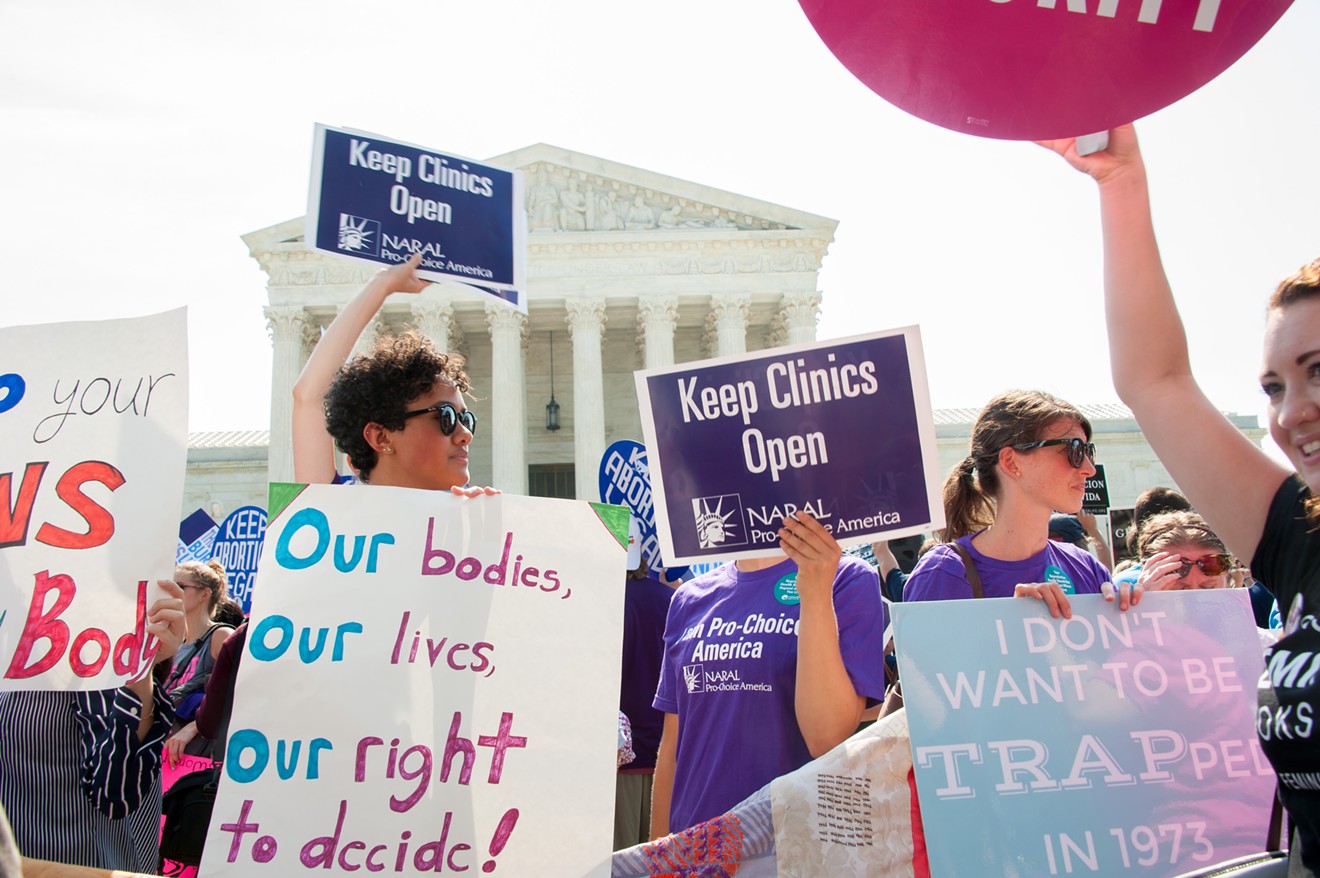As passed, House Bill 2 banned all abortions more than 20 weeks after conception, required any doctor performing an abortion in Texas to have admitting privileges at a hospital within 30 miles of the clinic the abortions are performed and required that abortion clinics be outfitted like hospitals, rather than day surgery centers.
In the aftermath of House Bill 2 passing the Legislature, more than half of the state's 40 abortion clinics closed. The U.S. Supreme Court overturned the admitting privilege and clinic requirements, but most of the clinics that closed never reopened. Nineteen healthcare clinics in the state provide abortions.
"Given the recent national debate over later abortions, it’s important to recognize that restrictive laws are a major obstacle preventing women from obtaining abortions earlier in pregnancy,” said Dr. Daniel Grossman, an investigator with the Texas Policy Evaluation Project and professor of obstetrics and gynecology at the University of California, San Francisco. “Once a patient has decided to have an abortion, access to care should be expedited, rather than placing barriers in her way that unnecessarily delay her care. Those who support reducing the number of later abortions should also support eliminating these unnecessary and burdensome restrictions."“Given the recent national debate over later abortions, it’s important to recognize that restrictive laws are a major obstacle preventing women from obtaining abortions earlier in pregnancy.” — Daniel Grossman
tweet this
For women in Texas, the inability to promptly seek an abortion upon finding out about a pregnancy could soon have dire consequences. A 2017 law that bans the most common procedure for second-trimester abortions is on hold because of a legal challenge, and a new bill that would ban abortions as early as six weeks after conception has more than 50 sponsors in the 150-member Texas House of Representatives.
Advocates for the 2017 law, like Texas Attorney General Ken Paxton, have painted the procedure it bans, dilation and evacuation of a fetus, as dismemberment of an infant. Briscoe Cain, the author of the new "Texas heartbeat bill," says that even the newest fetuses deserve the full protection of the state.
"The heartbeat is a universally recognized indicator of life," Cain said when he announced the bill earlier this month. "The Texas heartbeat bill recognizes that this universal indicator should also apply to our most innocent and vulnerable Texans."
A fetus six weeks after conception can't feel pain and is about the size of a pea. Its heartbeat can't be heard with a stethoscope or traditional ultrasound, only a transvaginal ultrasound. No six-week abortion ban has ever been upheld by a court, either, despite similar laws having been passed by multiple states.
Whatever the motivations of those behind Texas' anti-choice legislation — both Paxton and Texas Lt. Gov. Dan Patrick have said they want to end abortion in the state — Texas women's right to have a legal abortion is under threat.
When women are unable to get an abortion legally — as was the case in the '60s — they often seek out illegal abortions, Dr. Leana Wen, the president of Planned Parenthood, told the Observer last week.
"I'm an emergency physician, and I have a mentor who told me about what it was like to work in the 1960s, pre-Roe, that there was an entire area of the hospital known as the sepsis ward, filled with young women who came in because of abortions that they had to have in secret from unlicensed providers," Wen said, discussing the possibility of post-Roe v. Wade United States. "These are women who were dying from infections, dying from kidney failure. Just dying. Thousands of women died because they didn't have access to safe, legal abortion. That's what could happen now, 46 years after Roe v. Wade. I find that to be completely unconscionable."












